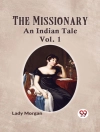Dawn O’Hara: The Girl Who Laughed (1911) is a novel by Edna Ferber. Written while the author was recovering from a bout of anemia, Ferber’s debut marked the beginning of an illustrious literary career. Inspired by her experience as a reporter in the city and countryside, Dawn O’Hara: The Girl Who Laughed is the story of a young woman who recognizes the unhappiness in her life and decides to risk it all for something better. Lighthearted in nature, Ferber’s novel recalls the best of Fitzgerald in its unswerving commitment to humanity in all its beauty and terror. “‘Newspaper reporting, h’m? In New York? That’s a devil of a job for a woman. And a husband who… Well, you’ll have to take a six months’ course in loafing, young woman. And at the end of that time, if you are still determined to work, can’t you pick out something easier—like taking in scrubbing, for instance?’” As though suffering a mental breakdown wasn’t bad enough, Dawn is forced to listen to the snide advice of a doctor who seems to know more about her home and professional life than she does. Determined to maintain her career as a reporter, she decides to move to a small town and start fresh. Away from the hustle and bustle of New York City, she hopes to find success while learning more about herself in the process. This edition of Edna Ferber’s Dawn O’Hara: The Girl Who Laughed is a classic work of American literature reimagined for modern readers.
Since our inception in 2020, Mint Editions has kept sustainability and innovation at the forefront of our mission. Each and every Mint Edition title gets a fresh, professionally typeset manuscript and a dazzling new cover, all while maintaining the integrity of the original book.
With thousands of titles in our collection, we aim to spotlight diverse public domain works to help them find modern audiences. Mint Editions celebrates a breadth of literary works, curated from both canonical and overlooked classics from writers around the globe.
Sobre o autor
Edna Ferber (1885-1968) was an American novelist, playwright, and short story writer. Born in Kalamazoo, Michigan to Jewish parents, Ferber was raised in Illinois, Iowa, and Wisconsin. Economic hardship and antisemitism made their family a tight knit one as they moved constantly throughout Edna’s youth. At 17, she gave up her dream of studying to be an actor to support her family, finding work at the Appleton Daily Crescent and the Milwaukee Journal as a reporter. In 1911, while recovering from anemia, Ferber published her debut novel, Dawn O’Hara: The Girl Who Laughed, earning a reputation as a rising star in American literature. In 1925, she was awarded the Pulitzer Prize for her novel So Big, which follows a young woman from a suburb of Chicago who takes a job as a teacher in a rural town. She followed up her critically acclaimed bestseller with the novel Show Boat (1926), which was adapted into a popular musical by Oscar Hammerstein and P. G. Wodehouse the year after its release. Several of her books became successful film and theater productions—So Big served as source material for a 1932 movie starring Barbara Stanwick, George Brent, and Bette Davis, which was remade in 1953 with Jane Wyman in the lead role. Ferber spent most of her life in New York City, where she became a member of the influential Algonquin Round Table group. In the leadup to the Second World War, Ferber supported President Franklin D. Roosevelt and was a fierce critic of Hitler and antisemitism around the world.












